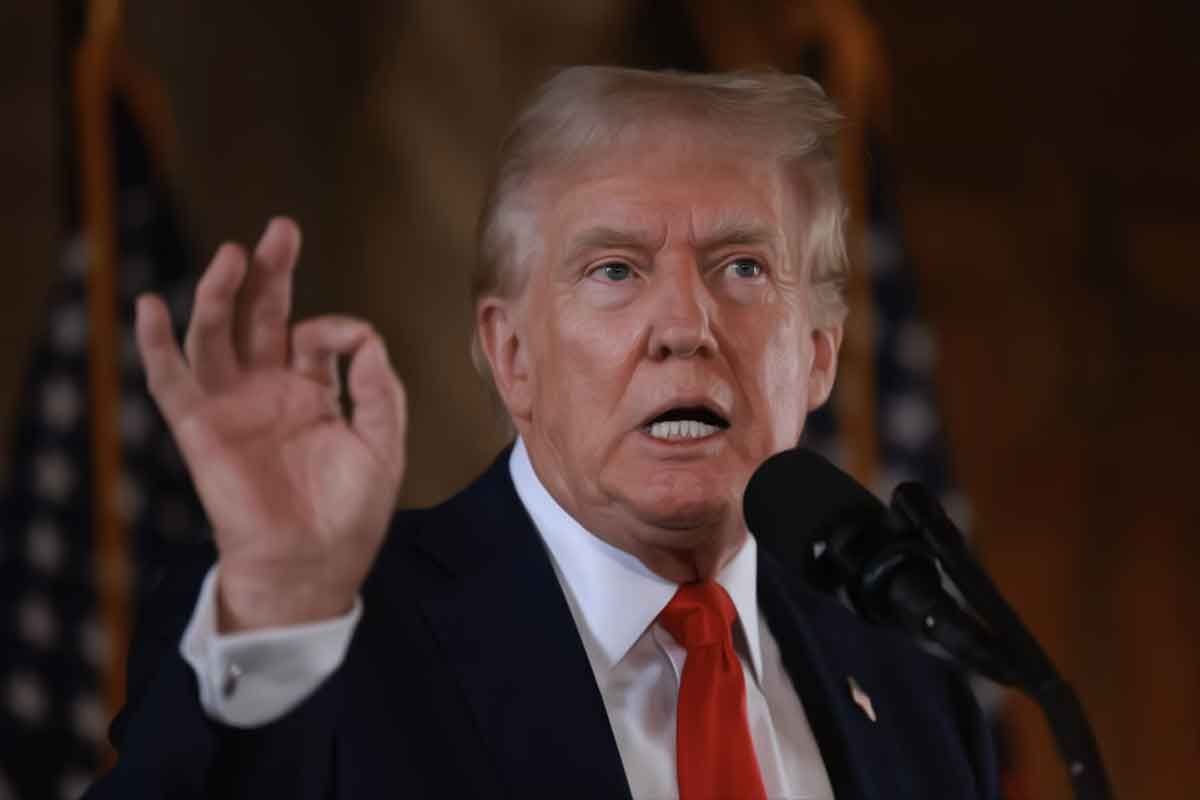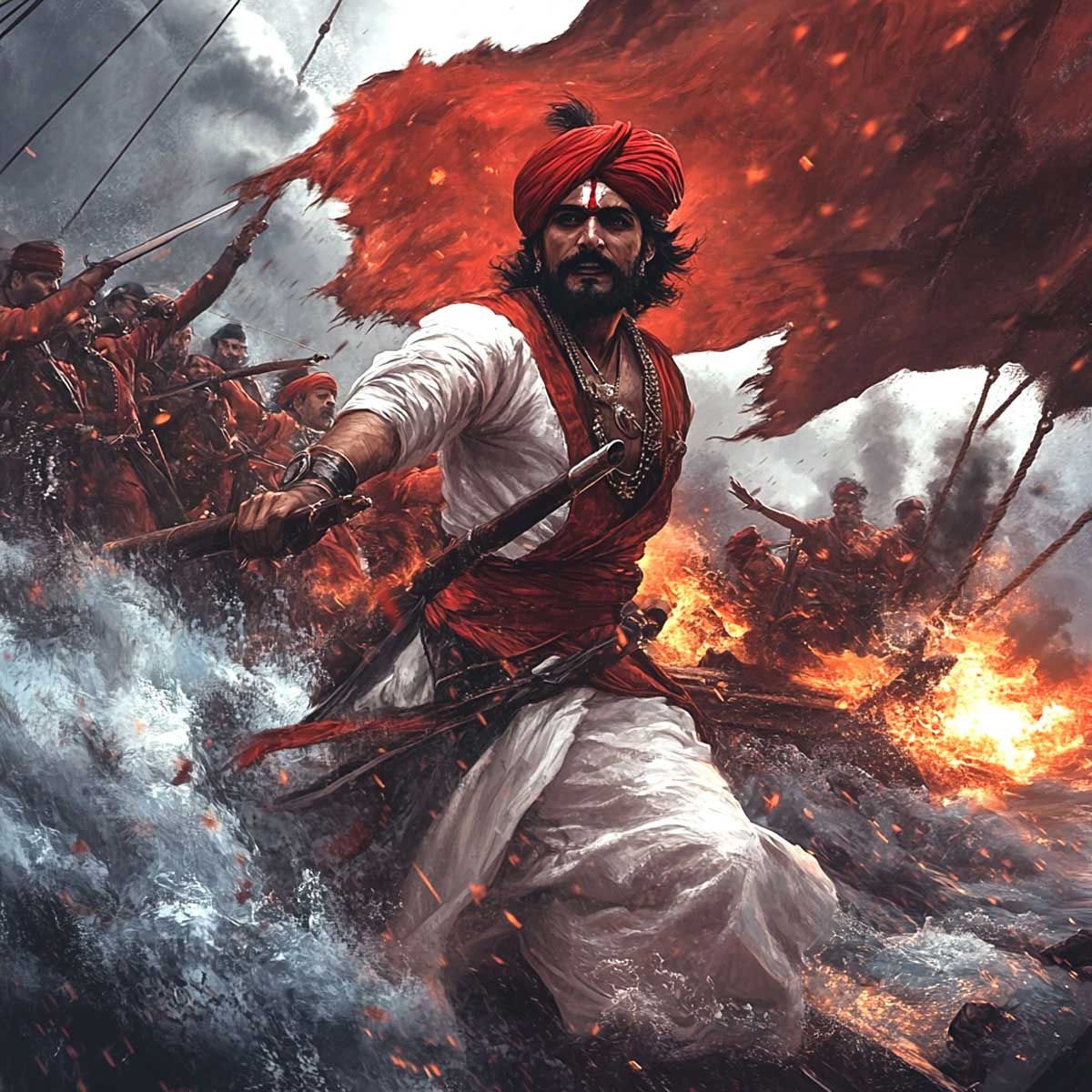MORE COVERAGE
Twitter Coverage
Satyaagrah
Written on
Satyaagrah
Written on
Satyaagrah
Written on
Satyaagrah
Written on
Satyaagrah
Written on
JOIN SATYAAGRAH SOCIAL MEDIA
The lasting impact of Trump’s transactional diplomacy reshaped America’s global role—alliances tested, NATO questioned, deals abandoned, trade wars ignited, and a bold yet unpredictable approach that left allies uneasy and adversaries watching closely

For decades, U.S. alliances have been the backbone of global stability, fostering economic cooperation and collective security. NATO, economic partnerships with European and Asian allies, and engagement in international organizations have cemented America’s leadership in world affairs. However, under Trump’s second term Presidency, these traditional alliances came under significant strain. His "America First" approach represented a dramatic departure from the multilateralism that had defined U.S. foreign policy for decades, favoring a more unilateral and transactional approach.
|
|
Trump’s administration took a "Realist" stance, prioritizing national sovereignty, economic self-interest, and security over diplomatic cooperation. While "Realism", as a school of international relations, underscores the role of power and self-preservation in an anarchic global system, Trump’s application of this principle went beyond pragmatic statecraft. His skepticism of NATO, confrontational trade policies, and direct engagement with authoritarian leaders reshaped America’s global standing and tested the resilience of long-standing alliances. This shift raised fundamental questions about the future of the international order and whether the damage to these partnerships would be lasting.
Trump viewed alliances not as enduring commitments based on shared values but as transactional relationships in which the United States should only participate if they provided immediate national benefits. His administration’s approach to international agreements underscored this perspective. In 2017, he withdrew the U.S. from the Paris Climate Agreement, arguing that it placed unfair economic burdens on American taxpayers while giving competitive advantages to countries like China. European allies, who had invested diplomatic capital in the deal, saw the move as a retreat from global leadership and a signal that the U.S. was no longer committed to cooperative solutions for pressing global issues.
The following year, Trump further alienated European allies by withdrawing from the Joint Comprehensive Plan of Action (JCPOA), commonly known as the Iran Nuclear Deal. The agreement had been a diplomatic achievement that involved the U.S., the European Union, and other key players in curbing Iran’s nuclear ambitions. Despite European objections, Trump unilaterally pulled the U.S. out, citing concerns over Iranian compliance and the agreement’s perceived shortcomings. This move deepened transatlantic tensions, forcing European nations to scramble to salvage the deal without U.S. support. The decision reinforced the notion that the U.S. was becoming an unreliable partner, willing to abandon agreements negotiated in good faith.
|
Nowhere was Trump’s skepticism toward alliances more apparent than in his approach to NATO. Since its founding in 1949, NATO has been a pillar of U.S. and European security, ensuring a collective defense against external threats. However, Trump repeatedly criticized the alliance, arguing that the United States was disproportionately shouldering its costs while European members failed to meet their financial commitments. His administration focused heavily on the 2% GDP defense spending target that NATO members had agreed upon, using it as a metric to question the alliance’s effectiveness.
While previous U.S. administrations had also encouraged greater burden-sharing, Trump’s rhetoric was uniquely confrontational. Pete Hegseth, the US secretary of defence, left European defence ministers in shock during a meeting in Brussels on February 12, 2025, as he unequivocally stated that European security is no longer a primary focus of the United States. French President Emmanuel Macron, who began advocating for greater European defense autonomy. Macron even proposed the formation of a “true European army” to reduce reliance on the U.S. for security.
Trump’s questioning of NATO’s value aligned with the 'Realist' perspective that alliances should be conditional and serve immediate national interests. However, this stance also undermined trust in U.S. leadership and introduced uncertainty among allies. The long-term strategic consequences of Trump’s NATO skepticism were significant. By casting doubt on America’s commitment to transatlantic security, he emboldened adversaries such as Russia, which has long sought to exploit pisions within NATO. The instability created by his rhetoric encouraged European nations to rethink their security strategies, though efforts to establish a more independent European defense force faced significant political and economic hurdles.
|
Trump’s trade policies further strained U.S. relations with key allies. His belief in economic nationalism—viewing trade as a zero-sum game—led to tariffs, renegotiations, and disputes that disrupted longstanding agreements. His administration imposed tariffs on steel and aluminum imports from the European Union, Canada, and Japan, citing national security concerns. The decision triggered swift retaliatory measures, escalating tensions and undermining the trust that had defined transatlantic economic relations.
At the same time, Trump launched a trade war with China, imposing tariffs on billions of dollars’ worth of Chinese goods. While this policy was aimed at countering Beijing’s economic rise, it had unintended consequences for U.S. allies. European nations and Asian partners, who had complex trade relationships with both the U.S. and China, found themselves caught in the middle of a growing economic conflict. Rather than building a unified front to challenge China’s influence, Trump’s approach created rifts within the Western alliance, weakening the effectiveness of a collective economic strategy.
One of Trump’s most consequential trade decisions was withdrawing the U.S. from the Trans-Pacific Partnership (TPP), a trade agreement designed to counterbalance China’s economic expansion in the Asia-Pacific region. Regional allies such as Japan and Australia had viewed the TPP as a critical component of economic and strategic cooperation. Without U.S. participation, the remaining member states moved forward with a modified deal, reducing American economic influence in the region and leaving a vacuum for China to fill.
Trump’s foreign policy also reflected a deep skepticism toward international institutions. He frequently dismissed multilateral organizations as bureaucratic and ineffective, favoring direct negotiations and unilateral actions. A striking example of this came in 2020 when he withdrew the U.S. from the World Health Organization (WHO) during the height of the COVID-19 pandemic. Citing the organization’s alleged bias toward China, Trump cut American funding like USAID and withdrew from global coordination efforts. His decision was widely criticized by allies, who saw it as an abdication of U.S. leadership at a critical moment. While Trump framed the move as a defense of national sovereignty, it reinforced the perception that the U.S. was disengaging from international cooperation, further isolating itself from global partners.
|
Another defining feature of Trump’s foreign policy was his engagement with authoritarian leaders, prioritizing strategic and economic interests over democratic values. His administration pursued direct negotiations with President Putin or previously North Korean leader Kim Jong-un, marking an unprecedented level of dialogue between the two nations. While these summits reduced immediate tensions, they yielded no concrete agreements, raising concerns about their long-term effectiveness.
Trump’s presidency significantly altered America’s relationships with its allies, embracing a 'Realist' approach that prioritized national power, economic self-interest, and unilateral decision-making. While his policies—such as pressuring NATO allies to increase defense spending—aligned with some longstanding U.S. concerns, his confrontational approach weakened diplomatic trust and created greater global uncertainty.
As the Democrat administration sought to rebuild alliances and reaffirm commitments to multilateralism, the question remained: Had Trump’s 'Realist' approach permanently reshaped U.S. foreign policy, or was it merely a temporary shift? Regardless of the answer, the erosion of trust, uncertainty among allies, and recalibration of strategic partnerships that took place under Trump’s leadership would have lasting effects on global affairs. The world now faced a redefined balance of power, one in which traditional alliances could no longer be taken for granted, and where the resilience of international cooperation would continue to be tested in the years to come.
 |
M A Hossain, political and defense analyst based in Bangladesh.
Vishakha jha, doctoral fellow of ICSSR, India
 Support Us
Support Us
Satyagraha was born from the heart of our land, with an undying aim to unveil the true essence of Bharat. It seeks to illuminate the hidden tales of our valiant freedom fighters and the rich chronicles that haven't yet sung their complete melody in the mainstream.
While platforms like NDTV and 'The Wire' effortlessly garner funds under the banner of safeguarding democracy, we at Satyagraha walk a different path. Our strength and resonance come from you. In this journey to weave a stronger Bharat, every little contribution amplifies our voice. Let's come together, contribute as you can, and champion the true spirit of our nation.
 |  |  |
| ICICI Bank of Satyaagrah | Razorpay Bank of Satyaagrah | PayPal Bank of Satyaagrah - For International Payments |
If all above doesn't work, then try the LINK below:
Please share the article on other platforms
DISCLAIMER: The author is solely responsible for the views expressed in this article. The author carries the responsibility for citing and/or licensing of images utilized within the text. The website also frequently uses non-commercial images for representational purposes only in line with the article. We are not responsible for the authenticity of such images. If some images have a copyright issue, we request the person/entity to contact us at This email address is being protected from spambots. You need JavaScript enabled to view it. and we will take the necessary actions to resolve the issue.
Related Articles
- Amid an unprecedented migrant influx, Elon Musk warns of New York City 'buckling under the load', Mayor Adams declares a humanitarian crisis, urging the Biden administration for aid as shelters near capacity and costs spiral to a staggering $12 billion
- "Secrets and Lies": Muhammad Yunus, linked to the Clintons through $13M USAID funds, $300K donation claims, IRS threats to Sheikh Hasina's son, and loans via Clinton Foundation, faces scrutiny over his daughter Monica’s alleged role in Biden’s PCAH
- "Isn't it the sweetest mockery to mock our enemies?": German Diplomat who mocked Trump when he said Germany would “become totally dependent on Russian energy" at UN in 2018 suddenly went silent as President's 'Russian Energy' warning comes true
- Trump, who bizarrely bragged about brokering an India-Pakistan ceasefire that India never acknowledged, unleashed 2,000 troops on LA streets as ICE snatched 118 immigrants, protesters choked on tear gas, a journalist was shot, and democracy gasped for air
- "बस, अब और नहीं": President Trump’s executive order halted USAID’s $954M Bangladesh program, froze $72B global aid for 90 days, and cut Rohingya funds, leaving post-revolution Bangladesh, grappling with economic turmoil and a $5B bailout request
- "गज़ब्बे है": Another assassination attempt on Donald Trump at his Florida golf club, with shooter Ryan Routh, a Democrat supporter who donated 19 times since 2019, targeting Trump with an AK-47; Routh also supported Tulsi Gabbard, now a Trump ally
- “Children are not things to be molded, but are people to be unfolded”: Trump DOJ Official: AMA’s call to prosecute foes of Child Trans Surgery is ‘Straight from the Soviet Playbook’, favor mutilate children whom they’ve convinced are trapped in wrong body
- "When life gets hard, try to remember: the life you complain about is only a dream to some people": Islamists forcefully occupied houses of Santal Hindu community in Dinajpur of Bangladesh and forced them to spend their days in other people’s backyards
- "Amra ki apraadh koray chiloom | What crime did we commit?": 10-year-old girl crying inconsolably daughter of Rani Roy found unconscious along with a nude dead body of her mother who was r@ped & killed by radicals in Islamic country Bangladesh
- "तख़्तापलट": Meet Muhammad Yunus, interim chief of Bangladesh, branded a ‘bloodsucker’ by Sheikh Hasina and a ‘US asset,’ as the US revokes Sheikh Hasina’s visa after her ouster and the UK denies her asylum, leaving her stranded at Hindon Airbase in India
- "India created Bangladesh in 1971": In last 6 months, 79 Hindus killed, 56 temples attacked, 468 homes vandalized, 26 crores extorted, 157 Hindu families and temples looted, 620 threatened with death, 145 murder attempts, 183 injured and 32 missing
- Against a mother's hesitant heart, Abhijit's journey ends in tragedy, marking him as the 9th Indian lost in the US this year, alongside Neel Acharya, Vivek Saini, and more; their stories, a sombre echo of dreams shattered far from home, cry out for safety
- 'In Trump I Trust': Donald Trump's Mar-a-Lago home raided, horde of angry supporters descends there in the hours following shock FBI raid of ex-president's Florida club, investigation focused on material that Trump took with him while leaving White House
- "Europeans will succumb to Islam": Former top German spy Hans-Georg Maaßen exposes an anti-German agenda, unveiling a disturbing prophecy of Muslim majority in Europe by 2200, raising questions about democracy and cultural transformation
- "Enough is Enough": Dublin is burning as citizens' anger explodes into violent protests & arson after an Algerian migrant's stabbing of 3 children and 2 adults; the community, shocked and grieving, fiercely confronts issues of immigration and safety

























